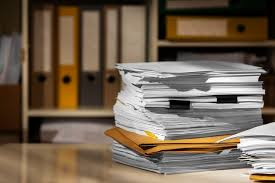Protecting Paper Documents and Secure Disposal: Global Experiences and Lessons Learned
5/8/20242 min read


In today’s digital age, discussing paper documents might seem outdated, yet many companies and institutions still heavily rely on them for recording transactions, storing sensitive information, or meeting legal requirements. However, protecting the data contained in these documents and disposing of them securely pose significant challenges. In this article, we will explore the importance of safeguarding paper documents, strategies for their secure disposal, and draw insights from real-world experiences of global companies, enriched with impactful quotes highlighting the value of information security.
The Importance of Protecting Paper Documents
Paper documents are an easy target for theft or leakage if not properly secured. According to a 2023 report by the Ponemon Institute, 60% of data breaches in small and medium-sized enterprises were linked to poor management of paper documents. As Benjamin Franklin wisely said, "An ounce of prevention is worth a pound of cure." This principle applies perfectly to document management, where a single moment of negligence can lead to severe consequences.
Strategies for Protecting Paper Data
Secure Storage: Documents should be stored in fire-resistant, locked cabinets. For instance, some Organizations Chase employs storage rooms secured with biometric technology to ensure only authorized personnel can access sensitive documents.
Restricted Access: Implementing a "need-to-know" policy reduces the risk of leaks. Deloitte developed an internal system that limits document access based on clearance levels, reducing security incidents by 30% over two years.
Continuous Training: Educating employees on best practices for handling documents enhances security awareness. As Warren Buffett noted, "The best investment you can make is in knowledge."
Secure Document Disposal
Improper disposal of paper documents can lead to catastrophic breaches. In 2019, a UK company suffered a data leak after sensitive customer information was discarded in public waste bins. To avoid such scenarios, global companies adopt specific strategies like Industrial Shredding, Secure Recycling and Documentation all documents which shredded.
Lessons from Real-World Experiences
The 2017 Equifax data breach serves as a stark reminder of the dangers of neglecting information security. While the breach was primarily digital, subsequent investigations revealed mismanagement of paper documents containing sensitive data, exacerbating the crisis. This incident echoes Bill Gates’ words: "How you gather, manage, and use information will determine whether you win or lose."
On the other hand, Google sets a gold standard. The company has developed a comprehensive document management system that includes digitizing sensitive records, storing paper copies in secure facilities, and disposing of unnecessary documents through certified shredding services. This approach has helped Google maintain its reputation as a leader in information security.
Protecting paper documents and disposing of them securely is not just an administrative task—it’s an investment in a company’s reputation and client trust. By learning from the experiences of global giants like JPMorgan Chase and Google, and implementing strategies such as secure storage, restricted access, and industrial shredding, organizations can significantly mitigate risks. As the saying goes, "Prevention is better than cure." It’s time to reassess how paper documents are managed to ensure a secure and sustainable workplace.
